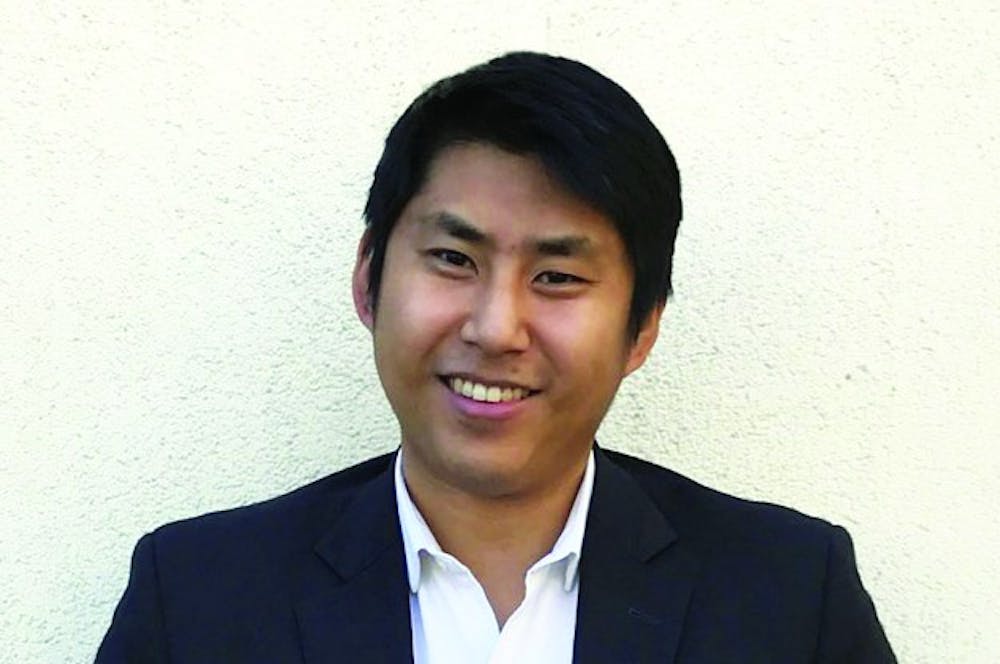Gabriel Otte, who was featured in Forbes' 30 under 30 this year for his work as CEO and co-founder of health technology startup Freenome, is facing scrutiny over his Penn degree — or lack thereof.
In articles, professional profiles and other websites, Otte is often cited, or implied, as having a Ph.D. He was listed as a Ph.D. on the Freenome website up until the beginning of March. The title has since vanished.
Otte enrolled in Penn's Genomics and Computational Biology graduate group in September 2011, but left the program without a degree in October of 2014, Katherine Baillie, a staff member in University Communications said.
BuzzFeed reported that Otte left Penn after a professor raised concerns about some of his research.
Shelley Berger, director of Penn’s Epigenetics Institute and Otte’s Ph.D thesis advisor at the time, told The Daily Pennsylvanian that she was forbidden by federal privacy laws to discuss the reasons why he left Penn. But Berger told BuzzFeed “there were many issues about Gabe’s work in the lab and Gabe leaving.”
Otte did not respond to an emailed request for comment.
During his time at Penn, Otte co-authored a total of five papers, some of which were published after he left Penn due to the time gap between date of submission in a scientific journal and its date of publication. Most of his papers dealt with the epigenome, or chemical compounds that regulate genetic activity. He joined Berger’s lab in 2012, and all of Otte’s published work cites Berger, among other contributors, as co-authors.
Berger told the DP that she and the other members of her lab “verified all the work that Gabe did in published papers.”
Freenome’s investors seem to be both aware and unaffected by the controversy surrounding Otte’s Ph.D. credentials and leave from Penn, and the company continues to thrive.
The company, which aims to develop screenings to detect cancer in its early stages, raised $65 million in funding this year.
“From the day we first met Gabe, he has been incredibly upfront about the fact that he doesn’t have a Ph.D. and left Penn before finishing his Ph.D work,” Freenome board member Vijay Pande told BuzzFeed. “Separately, we have done our own due diligence on Gabe and the technical details of the work he’s doing at Freenome and we’re thrilled to be one of his investors.”
According to an alumnus of the Epigenetics Institute, it is usually not common for lab members to prove that they did in fact perform a certain experiment.
"In the scientific community, in general there's a certain level of trust that exists that people have done the work that they're saying they did," he said. "On one occasion, [Otte] presented experimental results for which he could not provide the primary data."
Wei Wei Dang, a former postdoctoral researcher at Penn Medicine and first author of a paper that Otte contributed to, said Berger and others from the lab told Dang that Otte had been "dishonest".
“I only have heard from either Dr. Berger herself or from people in her lab that know about the situation that there were some issues with the data that [Otte] worked on,” Dang said. “Basically, that he was being dishonest about what he was doing in both in terms of data analysis [in Berger’s lab] and what he was doing outside of the lab.”
However, during the short period of time in which Otte worked under his lab back in 2013, Dang said Otte skillfully completed the tasks assigned to him, and he was surprised to hear about the issues with his work.
“Most of my interaction with him was over the phone or Skype,” Dang said. “While we worked together on the data analysis, I did not find any deliberate mistakes.”
Zuo-Fei Yuan, who also worked with Otte, said that he heard Otte went to work for a company in the summer of 2014 while still enrolled in the Ph.D. program, which is not allowed under University policy.
According to a graduate student booklet for Biomedical Graduate Studies, "Graduate students who accept a fully-funded fellowship from BGS are expected to devote themselves full time to their program of graduate study. Students may not simultaneously accept another appointment or be employed either within or outside the University."
Yuan also heard that Otte did not make much progress in the lab during that summer.









